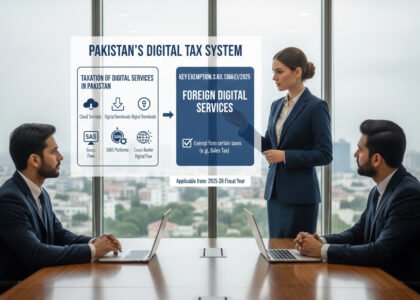SRO 1366(I)/2025 — Complete Guide to the Exemption on Digital Presence Proceeds Tax (With Practical Examples)
On 10 July 2025, the Federal Board of Revenue (FBR) issued SRO 1366(I)/2025 under Section


On 10 July 2025, the Federal Board of Revenue (FBR) issued SRO 1366(I)/2025 under Section

Whether you are an individual taxpayer, a business owner, or part of a corporate structure,